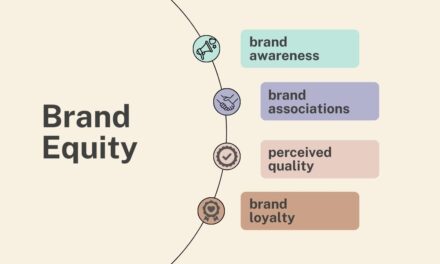Introduction
Welcome to the dynamic world of digital marketing, where branding is not just a buzzword but the cornerstone of your success as a coach. In this ever-evolving landscape, understanding and measuring the impact of your branding efforts is crucial. As a coach stepping into this realm, you might find yourself grappling with questions like “How do I measure the success of my marketing campaign?” or “What does branding success actually look like?”
Branding, in its essence, is about creating a unique identity and a lasting impression in the minds of your audience. It’s more than just a logo or a catchy tagline; it’s the heart and soul of your digital presence. But how do you gauge if your branding efforts are resonating with your audience? How do you quantify something as abstract as brand impact?
This blog post is designed to demystify these questions. We’ll explore effective strategies and tools to measure the effectiveness of your branding activities, drawing inspiration from successful brands like Starbucks. By the end of this guide, you’ll have a clearer understanding of what makes a branding campaign successful and how you can apply these insights to your coaching business. Let’s embark on this journey to transform your branding efforts from good to great, ensuring they leave a lasting impact.
Understanding Branding in Digital Marketing
In the digital age, branding transcends beyond traditional marketing. It’s an integral part of a coach’s toolkit to establish credibility, connect with the target audience, and stand out in a crowded market. But what exactly is branding in the context of digital marketing, and what makes it successful, especially for coaches?
Defining Digital Branding for Coaches: At its core, digital branding is about crafting a unique online identity that encapsulates your values, services, and what sets you apart as a coach. It’s how you communicate your story, expertise, and the transformative journey you offer to your clients. This encompasses everything from your website design, social media presence, content, to the overall customer experience.
Key Elements of Successful Branding: Successful digital branding hinges on consistency, authenticity, and engagement. It’s not just about having a visually appealing logo or a well-designed website. It’s about consistently conveying your message across all digital platforms in a way that is authentic to you and your coaching philosophy. This authenticity fosters a deeper connection with your audience, making your brand more relatable and trustworthy.
Role of Branding in a Coach’s Marketing Strategy: For coaches, branding is not just a marketing tactic but a strategic tool to attract and retain the right clients. It helps in differentiating your coaching services in a niche market, showcasing your unique approach and expertise. A strong brand creates a sense of familiarity and trust, which is crucial in the coaching industry where personal connection and credibility are key.
In essence, understanding and implementing effective branding in digital marketing is pivotal for coaches. It’s not just about creating a logo or a catchy slogan; it’s about building an identity that resonates with your target audience, reflects your coaching values, and sets the foundation for all your marketing efforts. As we delve deeper into measuring the success of these efforts, remember that the core of your branding should always align with your unique coaching identity and the value you provide to your clients.
The Importance of Measuring Branding Efforts
In the journey of establishing a successful coaching business, understanding the impact of your branding efforts is not just beneficial; it’s essential. Measuring the effectiveness of your branding is crucial for several reasons, especially in the context of digital marketing where data and metrics offer invaluable insights.
Guiding Business Strategies: First and foremost, tracking the success of your branding efforts helps in guiding your overall business strategy. By analyzing which aspects of your branding resonate with your audience, you can make informed decisions on where to focus your resources. This strategic approach ensures that your efforts are not just a shot in the dark but are tailored to what truly works for your coaching brand.
Enhancing Client Engagement: For coaches, whose work is deeply rooted in personal connections, understanding how your brand is perceived can significantly enhance client engagement. Measuring branding success helps in identifying the touchpoints that are most effective in engaging potential clients, allowing you to refine your approach to foster stronger relationships.
Cost-Effectiveness: Additionally, in a digital landscape where budget allocation is key, knowing the effectiveness of your branding campaigns ensures cost-effectiveness. By identifying the most impactful strategies, you can allocate your budget more efficiently, avoiding unnecessary expenditure on less effective branding elements.
In summary, measuring the success of your branding efforts is not just about quantifying your impact; it’s about gaining insights that drive smarter business decisions, enhance client engagement, and ensure the efficient use of resources. As we explore further, we’ll delve into the specific metrics and strategies that can help you achieve these goals in your coaching business.
Key Metrics for Measuring Branding Success
For coaches venturing into the digital marketing arena, understanding which metrics to track is pivotal for assessing the success of branding efforts. These metrics offer tangible data, providing insights into how effectively your brand is engaging with your audience and influencing their decisions.
1. Brand Awareness: This is the extent to which potential clients recognize and recall your coaching brand. Tools like Google Analytics can track website traffic, while social media analytics provide data on reach and impressions. Surveys and brand recall tests can also gauge awareness. For instance, how many people search for your coaching services by name? Increased brand awareness often translates to a larger audience considering your services.
2. Engagement Metrics: Engagement is a key indicator of how compelling your brand is. On social media, track likes, shares, comments, and follower growth. On your website, look at metrics like time spent on page and bounce rate. High engagement rates typically signal that your content resonates with your audience, fostering a connection with your brand.
3. Conversion Rates: Ultimately, the goal of branding is to convert audience members into clients. Conversion rates, whether they’re for signing up for a newsletter, downloading a coaching resource, or booking a consultation, are crucial. These metrics indicate the effectiveness of your branding in driving action. A high conversion rate suggests that your brand is not just seen but is also persuasive and trustworthy.
4. Customer Satisfaction and Loyalty: For coaches, client testimonials, repeat business, and referrals are gold. Tools like Net Promoter Scores (NPS) can measure customer satisfaction and likelihood of recommending your services. Loyal clients are a testament to a strong brand that delivers value beyond the initial engagement.
5. SEO Rankings: Where your brand ranks on search engines for relevant keywords is a vital metric. High rankings for terms like “life coaching services” or “business coaching expert” indicate strong brand visibility and relevance in your niche. Tools like SEMrush or Google’s Keyword Planner can help track these rankings.
6. Sentiment Analysis: Understanding public sentiment towards your brand is crucial. This involves analyzing comments, reviews, and social media mentions to gauge whether the sentiment is positive, negative, or neutral. Positive sentiment is a strong indicator of branding success.
Incorporating these metrics into your branding strategy offers a comprehensive view of your brand’s impact. By regularly monitoring and analyzing these data points, you can fine-tune your approach, ensuring that your branding not only captures attention but also builds lasting relationships with your audience. Remember, successful branding in digital marketing is a blend of art and science – the art of storytelling and the science of data-driven decision-making.
Strategies to Measure the Success of a Marketing Campaign
Measuring the success of a marketing campaign, especially for coaches in the digital realm, requires a strategic blend of qualitative and quantitative approaches. Here are key strategies that can help you gauge the effectiveness of your marketing efforts:
1. Set Clear Objectives and Key Performance Indicators (KPIs): Before launching a campaign, define what success looks like. Is it more website traffic, increased sign-ups for your coaching sessions, or enhanced engagement on social media? Setting specific, measurable goals allows you to track progress effectively. For instance, if your objective is to increase brand awareness, KPIs might include social media followers, website visits, or mentions in online forums.
2. Utilize Analytics Tools: Digital marketing offers the advantage of real-time analytics. Tools like Google Analytics, Facebook Insights, and Instagram Analytics provide valuable data on user behavior, engagement rates, and demographic information. These tools help in understanding how your audience interacts with your campaign, what content they find most engaging, and where they drop off in the conversion funnel.
3. Monitor Conversion Rates: Tracking conversions is crucial in understanding the effectiveness of your campaign. Whether it’s filling out a contact form, downloading a coaching guide, or booking a session, each action taken by a potential client is a measure of your campaign’s success. Analyzing these conversion rates helps in identifying which aspects of your campaign are driving results and which need tweaking.
4. Conduct A/B Testing: A/B testing involves comparing two versions of a campaign to see which performs better. This could be different email subject lines, landing pages, or social media ads. By testing different elements, you can refine your approach based on concrete data, enhancing the effectiveness of your marketing efforts.
5. Gather Client Feedback: Direct feedback from clients is invaluable. Surveys, feedback forms, or even informal conversations can provide insights into what aspects of your campaign resonated with them. This qualitative data complements the quantitative data from analytics tools, providing a holistic view of your campaign’s impact.
By implementing these strategies, you can gain a comprehensive understanding of your marketing campaign’s performance. Remember, the key is to continuously learn and adapt, ensuring that each campaign is more informed and effective than the last.
Tools and Techniques for Effective Measurement
In the digital marketing landscape, having the right tools and techniques at your disposal can significantly enhance your ability to measure and understand the success of your branding efforts. For coaches, these tools not only simplify data analysis but also provide actionable insights to refine marketing strategies.
1. Google Analytics: This is a must-have tool for any digital marketer. Google Analytics offers comprehensive insights into website traffic, user behavior, and conversion metrics. Coaches can track which pages are most visited, the average time spent on the site, and the journey users take before converting (e.g., signing up for a newsletter or booking a session). This data is crucial for understanding how visitors interact with your brand online.
2. Social Media Analytics Tools: Platforms like Facebook Insights, Twitter Analytics, and LinkedIn Analytics provide detailed data on social media engagement. These tools allow you to track follower growth, post engagement (likes, comments, shares), and the reach of your content. Understanding these metrics helps in tailoring your social media strategy to better engage with your target audience.
3. Email Marketing Analytics: Tools like Mailchimp or Constant Contact offer insights into your email marketing campaigns. You can track open rates, click-through rates, and conversions from emails. This information is vital for understanding how your audience engages with your email content and what drives them to take action.
4. SEO Tools: Tools like SEMrush, Ahrefs, or Moz are essential for tracking your search engine rankings and understanding your online visibility. They provide data on keyword rankings, backlinks, and competitor analysis, which are crucial for optimizing your website and content for better search engine performance.
5. Customer Relationship Management (CRM) Software: CRM systems like Salesforce or HubSpot help in tracking interactions with potential and existing clients. They provide insights into the customer journey, from initial contact to conversion, and can be invaluable in understanding how clients are engaging with your brand over time.
By leveraging these tools and techniques, coaches can gain a deeper understanding of their branding efforts’ effectiveness. These insights not only guide strategic decisions but also help in continuously improving the impact and reach of your brand in the digital space.
Case Studies: Successful Branding Campaigns
To illustrate the power of effective branding, let’s explore a couple of case studies from the coaching industry, showcasing how strategic branding efforts led to tangible success.
1. The Transformation Coach: A life coach specializing in personal transformation utilized a multi-platform approach, combining inspirational content on social media with informative blog posts and engaging webinars. By consistently delivering content that resonated with their target audience’s desire for personal growth, they saw a 40% increase in social media engagement and a 25% rise in webinar attendance. Their success was measured by tracking social media analytics and webinar sign-up rates, demonstrating the impact of cohesive and resonant branding.
2. The Business Leadership Coach: Focusing on corporate clients, this coach revamped their website to highlight success stories and client testimonials. They also launched a targeted LinkedIn marketing campaign, sharing insights and tips on effective leadership. The result was a 30% increase in website traffic and a 20% growth in consultation bookings. The key metrics here were website analytics and conversion rates from the LinkedIn campaign, showcasing the effectiveness of a targeted approach and the power of leveraging client testimonials in branding.
These case studies exemplify how clear, consistent branding, tailored to the target audience, can significantly enhance engagement and business growth. For coaches, these examples serve as a blueprint for how to measure and replicate such success in their own branding efforts.
Conclusion: Crafting Your Measurement Plan
In conclusion, measuring the success of your branding efforts as a coach in the digital marketing sphere is not just about tracking numbers; it’s about understanding the story behind them. By setting clear objectives, utilizing the right tools, and consistently analyzing your metrics, you can gain invaluable insights into your brand’s impact. Remember, the goal is to create a brand that resonates with your audience and drives engagement. As you embark on this journey, let these strategies and tools guide you in crafting a measurement plan that aligns with your unique brand and helps you grow your coaching business effectively.











